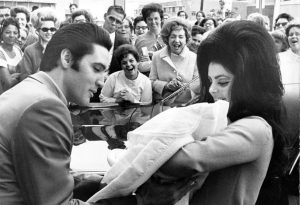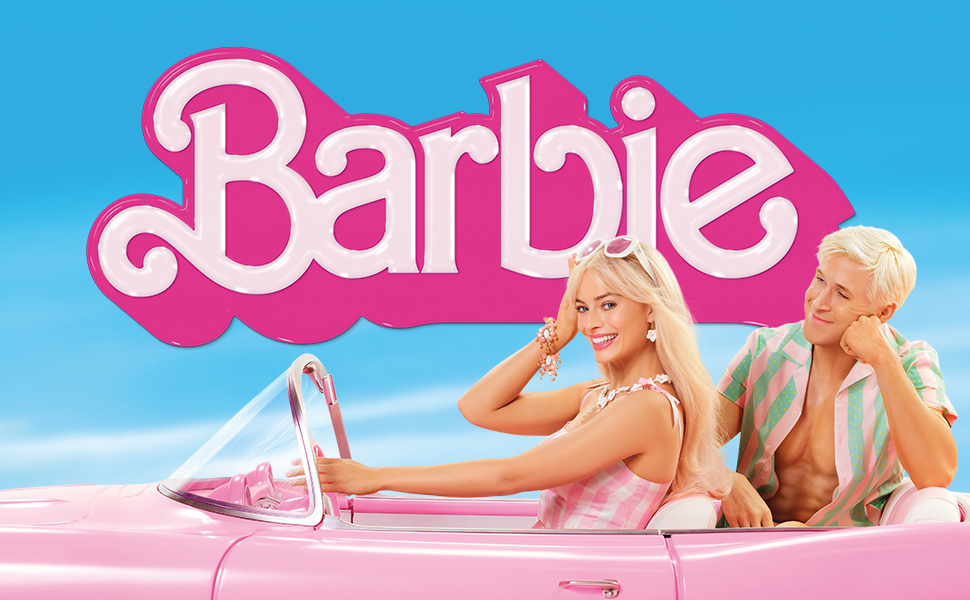In 2023, mainstream audiences zealously anticipated the release of two films: Barbie and Priscilla. Driven by renowned female directors Greta Gerwig and Sophia Coppola, viewers expected both movies to comment on feminine limitations and injustice within society’s perception of the titular icons.
Barbie
The much-anticipated Barbie hit box office, social media pages, and Times Square ads expectations with impressive strength. For many, Barbie offered a campy yet profound take on feminist ideas and broke up heavy problems into easily digestible and understood pieces. However, Barbie’s superficial view on feminism and its overuse of satire fell short of the highly acclaimed film viewers were promised. With its lauded director, actresses, and stylists, Barbie had a wide pathway to success. However, these incredible artists’ performances were uncharacteristically underwhelming. Gerwig’s use of satire was both excessive and patronizing; the sickly sweet way in which controversial feminist topics were breached felt like a mockery of highly layered complexes. From the moment the film starts, Gerwig utilizes comedy and persiflage to disguise deeper discussion. This approach inadvertently trivializes the issues it intends to address. Additionally, it is condescending to viewers to assume they would only be able to pick up on cinematic and social devices if they were shoved in their faces. Further, the idea that Barbie is only able to obtain and maintain social and economic power when Ken is unable to lead insinuates that strong female leaders are only as strong as their least competent male counterparts. Another SLS student, Samantha Gerber, 2025, agrees, saying “[w]hile I understand the cultural significance of Barbie, I thought that the feminism lacked nuance and intersectionality, promoting a somewhat essentialist message. The way that the movie went about these ideals also felt infantilizing to me; it left nothing up to interpretation and did all the (surface-level) analyses for the viewer.” Overall, Barbie’s take on feminism felt commercial, forced, and unambiguous.

Priscilla
Written and directed by Sofia Coppola, Priscilla is a sensationalized portrayal of the titular woman’s infamous relationship with Elvis Presley. Based on her memoir Elvis and Me, the A24 production gives Priscilla’s identity a platform to be seen by audiences in a fresh light. She is no longer a background character, but an emblematic figure who must navigate the universal plight of female alienation.
Like Barbie, Coppola’s film shows the perspective of an iconic figure whose hyper-femininity has hindered her ability to be taken seriously in the public eye. However, Priscilla holds more nuance than its mainstream counterpart because it is not simply a statement of intro-level feminism through hot-pink attire; Coppola uses Priscilla’s distinctive aesthetic as a vehicle to depict her relationship with autonomy. In a film lacking excessive dialogue, Priscilla’s clothing illustrates her story, emphasizing moments of innocence, subordination, rebellion, and, finally, liberation. Furthermore, the costumes are exquisite, accurately and stunningly capturing the height of ‘60s fashion.
As demonstrated in films such as The Virgin Suicides, Lost in Translation, and Marie Antoinette, Coppola’s strength lies in her projects’ details. By not including any Elvis songs, she adds a degree of separation between Priscilla and the “king of rock and roll” who has thus far defined her. Through the casting alone, of Cailee Spaeny and Jacob Elordi, Coppola highlights Elvis (Elordi) as a dominant force via the actors’ extreme height difference. Further, the height difference provides the audience with a level of discomfort necessary when depicting a 14-year-old Priscilla being courted and subsequently groomed by a man ten years her senior. Nevertheless, Priscilla is not exclusively a victim, just as Elvis is not entirely a villain. Palpable love seeps through the screen, almost leading the viewer to root for the seminal romance. However, the heart of the film resides in its final shot – the bittersweet glimmer of relief on Spaeny’s face as Priscilla leaves Graceland, entering the world to define “a life of [her] own.”
While the exposure and platform given to both films reflects the progress of our time, Priscilla – in its subtle way – ultimately proves to be a better film with a stronger message. While Barbie seems to jump on the movement of “girl-boss” feminism, Priscilla highlights a commodity that has justifiably remained at the forefront of feminist ideology for centuries: self-respect.










